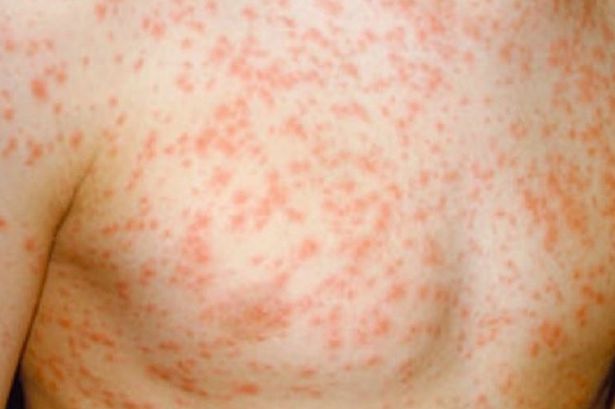There are several symptoms you should not ignore as symptoms of a Victorian disease have surged in recent weeks.
An "almost entirely preventable" measles outbreak has seen cases of the disease continue to surge across parts of the UK. Measles is an infection that spreads very easily and can cause serious problems in some people.
Having the MMR vaccine is the best way to prevent it, but the ECHO previously reported that health experts have blamed vaccine hesitancy for the recent spike in cases, with recent figures showing 1,603 suspected cases of measles in England and Wales reported to the UK Health Security Agency (UKHSA) in 2023.
READ MORE: Met Office issue four-day weather warning for Merseyside as Storm Isha to batter UK
READ MORE: 'Heartbreaking' tributes to man who fell from Stena Line ferry
That is more than double the 735 cases in 2022 and more than quadruple the 360 suspected cases reported in 2021. Cases have continued to surge into 2024, with 64 suspected cases in the first week of January alone.
Liverpool director of Public Health Professor Matt Ashton took to X, formerly Twitter, to share his concerns. He wrote: "Outbreaks in London and the West Midlands means Measles is likely to spread rapidly across more parts of the UK unless more people take up the vaccine. Cities like #Liverpool are particularly at risk!"
As cases continue to rise, the NHS has a list of symptoms that should not be ignored. Measles usually starts with cold-like symptoms, followed by a rash a few days later, some people may also get small spots in their mouth.
The first symptoms of measles include:
- a high temperature
- a runny or blocked nose
- sneezing
- a cough
- red, sore, watery eyes
Small white spots may appear inside the mouth and a few days after the cold-like symptoms, a rash often appears. The spots of the measles rash are sometimes raised and join together to form blotchy patches and are not usually itchy.
You should contact your GP or 111 if:
- you think you or your child may have measles
- you've been in close contact with someone who has measles and you've not had measles before or you've not had 2 doses of the MMR vaccine
- you've been in close contact with someone who has measles and you're pregnant – measles can be serious in pregnancy
- you have a weakened immune system and think you have measles or have been in close contact with someone with measles
Measles can spread to others easily. Call your GP surgery before you go in. They may suggest talking over the phone.
To avoid the spread, people are urged to wash their hands often, use tissues and throw used tissues in the bin. People are advised against sharing items such as cutlery and bedding and towels.
Measles can lead to serious problems if it spreads to other parts of the body, such as the lungs or brain, often resulting in pneumonia, meningitis, blindness or fits. Anyone pregnant and who has been in close contact with someone who has measles should seek medical advice.
Enter our £2,000 Wickes voucher giveaway and step into 2024 with style

